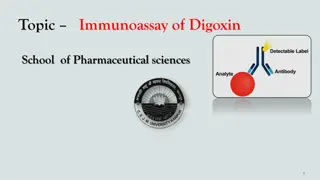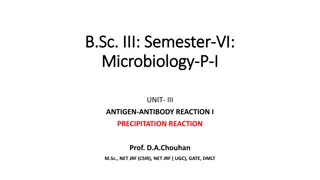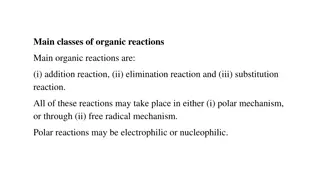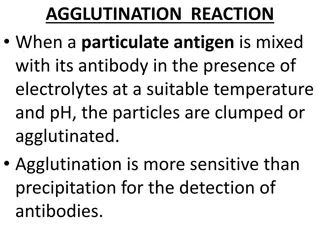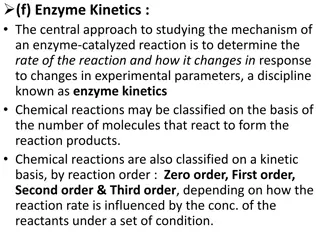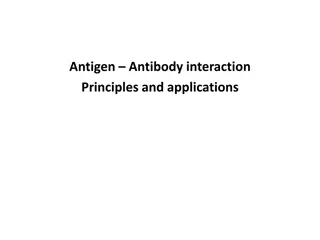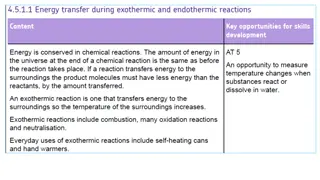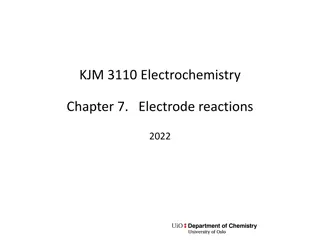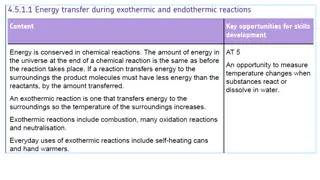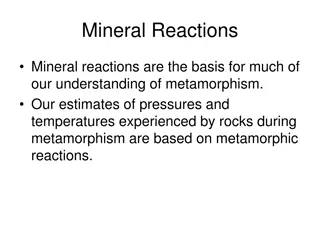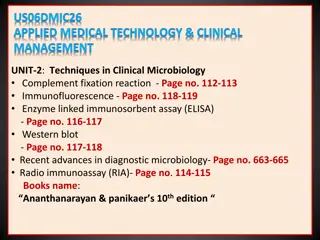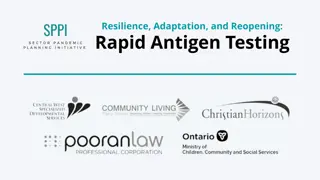
Understanding Antigen-Antibody Reactions: Key Terminology & Concepts
Dive into the world of antigen-antibody reactions with this comprehensive guide. Learn about antibodies, antigens, epitopes, paratopes, affinity, avidity, valency of antibodies, and more. Explore the intricate interactions that occur in the immune system and their significance in detecting minute quantities of antigen/antibody in immunological tests.
Download Presentation

Please find below an Image/Link to download the presentation.
The content on the website is provided AS IS for your information and personal use only. It may not be sold, licensed, or shared on other websites without obtaining consent from the author. If you encounter any issues during the download, it is possible that the publisher has removed the file from their server.
You are allowed to download the files provided on this website for personal or commercial use, subject to the condition that they are used lawfully. All files are the property of their respective owners.
The content on the website is provided AS IS for your information and personal use only. It may not be sold, licensed, or shared on other websites without obtaining consent from the author.
E N D
Presentation Transcript
Antigen-Antibody reactions (1)
KeyTerminology: Antibodies: Specialized soluble proteins produced by B cells and plasma cells that interacts with antigen; also called immunoglobulin (Ig). Each B-cell makes its own distinct antibody in response to a specific antigen. Each antibody is designed to bind to a specific surface binding site or epitope on theantigen. There are millions of different types of antibodies circulating in an individual s bloodstream and they are based on exposure to antigens in his/her environment.
KeyTerminology: Antigens: Substances that when introduced into the body stimulates the production of an antibody. Antigens = non-self molecules and cells such as: foreign proteins viruses environmental pollutants bacteria and parasites (Protista, Fungi, Plantae, and Animaliacells). foreign transplantedtissue
Keyterms: Epitope: also known as (antigenic determinant), is the part of an antigen that is recognized by the immune system, specifically by antibodies, B cells, or T cells. Paratope: also called an (antigen-binding site), is a part of an antibody which recognizes and binds to an antigen. 6
Keyterms: Affinity: measures the strength of interaction between an epitope and an antibody binding site (Paratope). 8
Keyterms: Avidity: is a measure of the overall stability of the complex between antibodies and antigens Governed by the intrinsic affinity of the antibody for the epitope, the valency of the antibody and antigen, 9
Key terms: Valency of antibody: refers to the number of antigenic determinants (Epitopes) that an individual antibody molecule can bind. 10
Keyterms: In immunological tests Sensitivity: Ability to detect minute quantities of antigen/antibody. Specificity: Ability to detect homologous antigen and noother. 12
When Ag-Ab reactions occur invitro, they are known as serological reactions. The reactions between Ag and Ab occur in three stages. a. In first stage the reaction involves formation of Ag-Ab complex. b. The second stage leads to visible events like precipitation, agglutination etc. c. The third stage includes destruction of Ag or its neutralization


